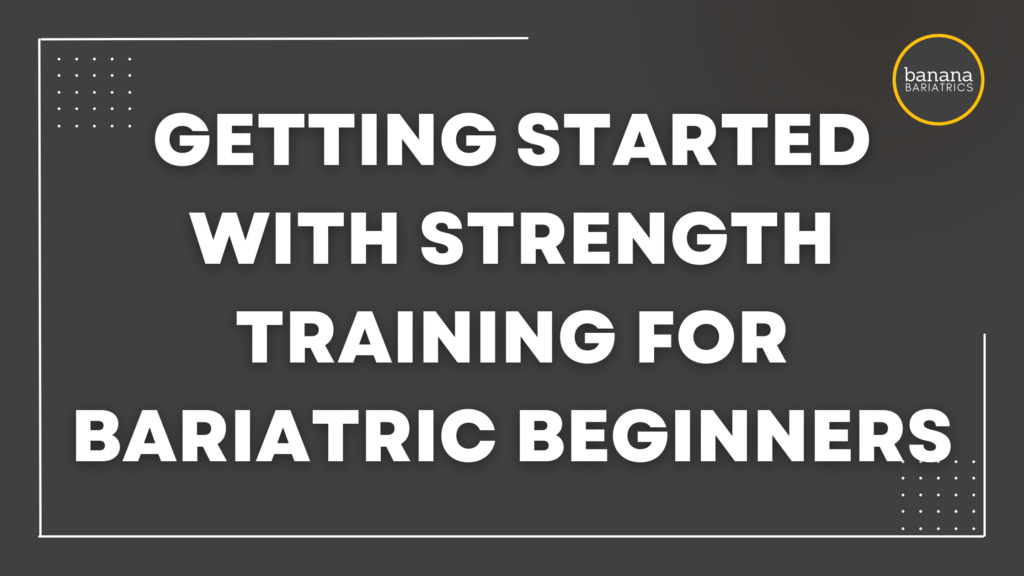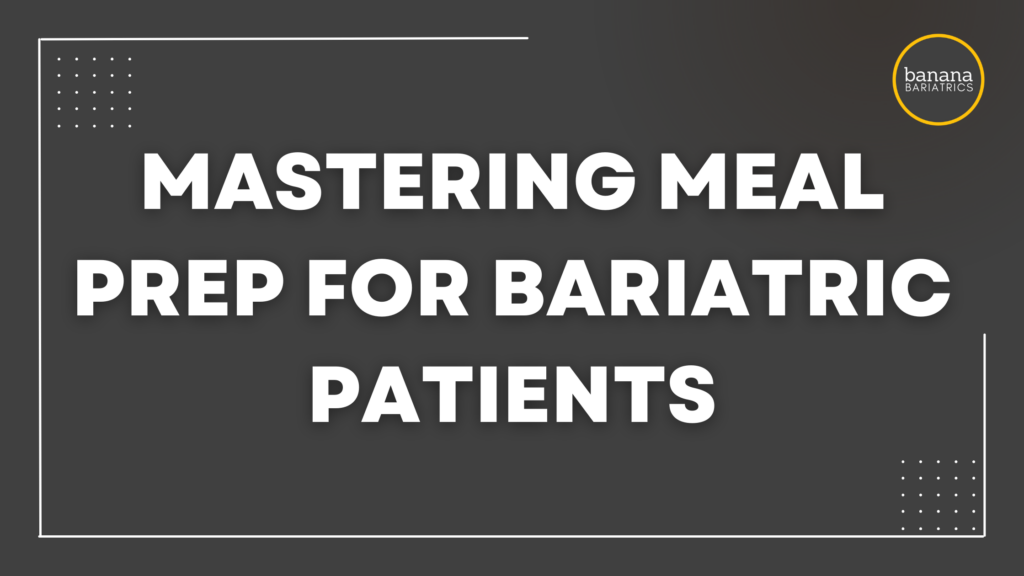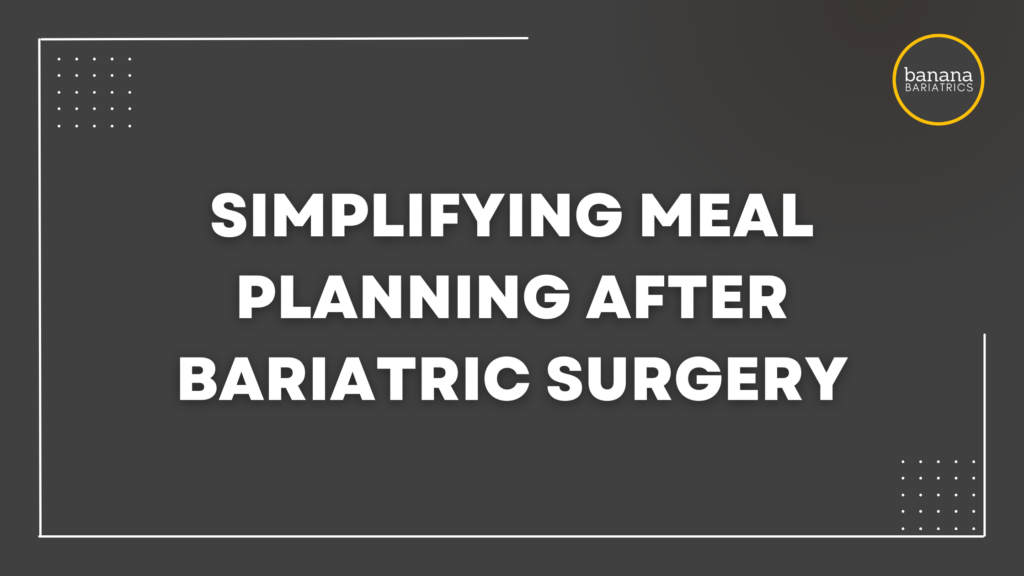Importance of Setting Boundaries in Protecting Your Health Goals

Boundaries can often be mistaken only in terms of interpersonal relationships. However, boundaries play a crucial role in a very important part of our life: in protecting, achieving, and maintaining our health goals after bariatric surgery. In this week’s blog post, we are going to uncover why boundaries are indispensable for your health and how setting and respecting them can help you accomplish your “Why” and can help you live a healthier life.
The Concept of Boundaries
Boundaries are the limits we set with other people. It determines what we decide is acceptable and unacceptable behavior towards us. Boundaries are imperative in keeping our mental and physical well-being protected from others. When it comes to our health goals such as improving our physical fitness or in achieving mental tranquility, being able to verbalize your limits to others shows that we are prioritizing these components of our lifestyle and are protecting them from others.
There are different categories of boundaries that all serve a greater purpose of protecting our personal health goals.
Personal: These are about respecting your physical space and body. It includes habits that contribute to your health, like diet and exercise.
Emotional: This involves protecting your mental space by choosing what emotional energies you allow in your life.
Time: Time management is crucial for health goals. When we limit some of our time for others and preserve the rest for our own exercise, relaxation, and sleep, we ensure that are protecting our health goals with strong time boundaries.
The Benefits of Setting Boundaries for Health Goals
Think back to prior to having surgery. What was your “Why”? Why did you want to have surgery in the first place? As time goes on and as the years pass from your original surgery date, you may find yourself re-defining your Why again as your goals shift. As you learn to set boundaries, always have your Why at the forefront of your mind. Your boundaries will ensure that you make decisions, learn how to say “no,” and continue on a clear path in alignment of your greater health goals. There are many benefits to setting boundaries for your health goals. Here are a few:
- Improved Mental Health: Setting boundaries can significantly reduce stress and anxiety, leading to a healthier state of mind.
- Better Physical Health: By prioritizing health goals through boundaries, you can improve your physical health, whether it is through maintaining a diet founded in bariatric guidelines, strength training a few days per week, and ensuring you are getting close to 8 hours of sleep at night.
- Enhanced Self-Esteem and Relationships: Boundaries can lead to improved self-respect and healthier relationships, as they foster mutual respect and understanding.
How to Begin Setting Boundaries
Setting boundaries with others is a crucial step in maintaining your well-being and ensuring that your relationships are respectful and mutually beneficial. It involves communicating your needs and limits to others in a clear and assertive manner.
Begin by understanding your own needs, values, and priorities. Identify what aspects of your life you need to protect or what behaviors from others you find unacceptable. This self-awareness is the foundation upon which you will build your boundaries.
Once you’ve identified your needs, clearly define your boundaries. Be specific about what is okay and what is not okay for you. Boundaries can be related to your time, emotional energy, physical space, and personal belongings, among other things. Your needs and circumstances may change, and it’s okay to adjust your boundaries accordingly. Be open to reassessing and communicating changes in your boundaries to others as needed.
The key to setting boundaries is effective communication. Express your boundaries to others clearly and assertively, without being aggressive or passive. Use “I” statements to express how you feel and what you need, such as “I feel overwhelmed when I don’t have time for myself. I need to ensure I have time to relax each day.” Non-verbal cues, such as body language and tone of voice, play a significant role in setting boundaries. Stand firm, maintain eye contact, and use a tone that conveys confidence and respect. This helps reinforce the message that you are serious about your boundaries.
Saying “No” is an essential skill in setting boundaries as well. You don’t have to justify your reasons or feel guilty for not meeting someone else’s demands or expectations. A simple “No, I can’t do that” or “No, I’m not comfortable with that” is a complete sentence.
Consistency is key to maintaining boundaries. People may test your limits, consciously or unconsciously, so it’s important to consistently reinforce your boundaries. This helps others understand your limits and respect them.
Having An Approach To Resistance From Others
Not everyone will respond positively to your boundaries. Be prepared for some resistance or negative reactions. Remember, setting boundaries is about respecting yourself and your needs, not about pleasing others. Stay firm and reiterate your boundaries if challenged. If you’re not used to setting boundaries, it can be challenging and may feel intimidating. Seek support from friends, family, or a positive and uplifting bariatric community who can provide encouragement and guidance. Surrounding yourself with people who respect your boundaries can also help reinforce them.
Throughout this process, practice being kind to yourself. Setting boundaries is a skill that takes time to develop. Celebrate your progress and recognize that it’s okay to make mistakes along the way.
Setting boundaries is not about creating barriers or distancing yourself from others. Instead, it’s about creating healthy relationships based on mutual respect and understanding. By setting clear boundaries, you protect your well-being and foster healthier, more fulfilling relationships.
Conclusion
Setting boundaries with others is a vital aspect of maintaining personal well-being and fostering healthy relationships. It starts with self-reflection to understand your needs, followed by clearly defining and assertively communicating those boundaries to others. Mastering the art of saying “no”, being consistent, and using non-verbal cues are essential for reinforcing your limits. While resistance may occur, it’s important to stay firm, seek support, and practice self-compassion throughout the process. Remember, setting boundaries is not about isolation but about establishing respect and understanding in your interactions with others, and it’s okay to adjust these boundaries as your needs evolve.
Bariatric Patient Examples
Example #1: Stephanie works as an in-home caregiver for the elderly. She had a challenging time following the passing of her last patient whom she had spent many years caring for and developing a relationship with. She told herself that she would give herself some time in between accepting another patient so that she could rest and emotionally recover for some time.
However, her mother’s best friend was also elderly and she was approached by the daughter who was desperate for caregiving support. Stephanie felt a pull to comply and to take care of her mother’s best friend given the nature of their relationship. She felt guilty saying “no” but stood up for her boundaries and told the daughter that she would be happy to provide caregiving for her in a few weeks after she could recoil from her last patient.
Can you relate to this story?
Example #2: Barbara was frustrated with her husband. She really wanted to get back on track with her weight loss again now that she was a few years out from surgery and wanted to start implementing exercise into her weekly routine. She would wait until her husband came home from work so that they could go on a walk together around the neighborhood for a few miles.
Unfortunately, every time her husband walked in the door, he would either complain about being too tired, or would change clothes and plop on the couch. She found herself giving in to the same temptations. After reviewing her “Why” and learning that she wasn’t protecting her health goals or her time, Barbara eventually learned to leave the house whether her husband joined her or not. She decided to bring her phone and to call one of her friends to help her find companionship and to pass the time. She learned that regardless of what others are doing, it was still her responsibility to protect her Why and her ultimate health goals.
Do You Struggle With Exercising As Well?
Exercise is pivotal in maintaining skeletal muscle mass, in burning fat, and in maintaining a health weight after surgery. It’s not always easy though! Let us help you begin your post-bariatric fitness journey with our FREE Bariatric Fitness Guide!

Our FREE Bariatric Fitness Guide will help you:
- Set realistic goals that are attainable, flexible, and will help keep you motivated
- Gain insights on your overall body composition than just a number on the scale
- Learn about different low-impact exercises that are joint-friendly and pain-free
- Fuel your workouts with pre and post-workout food options
- Build and progress your fitness abilities through tracking and community support






Responses